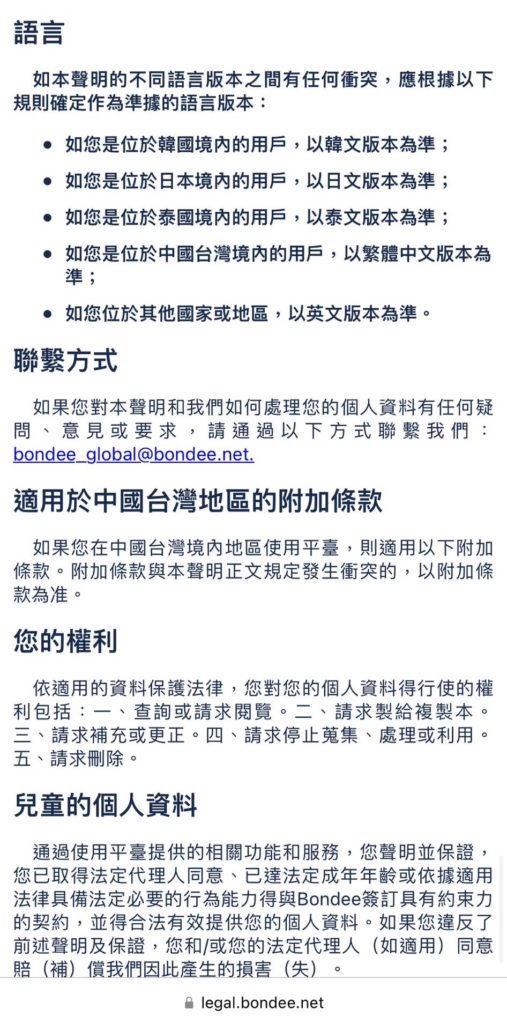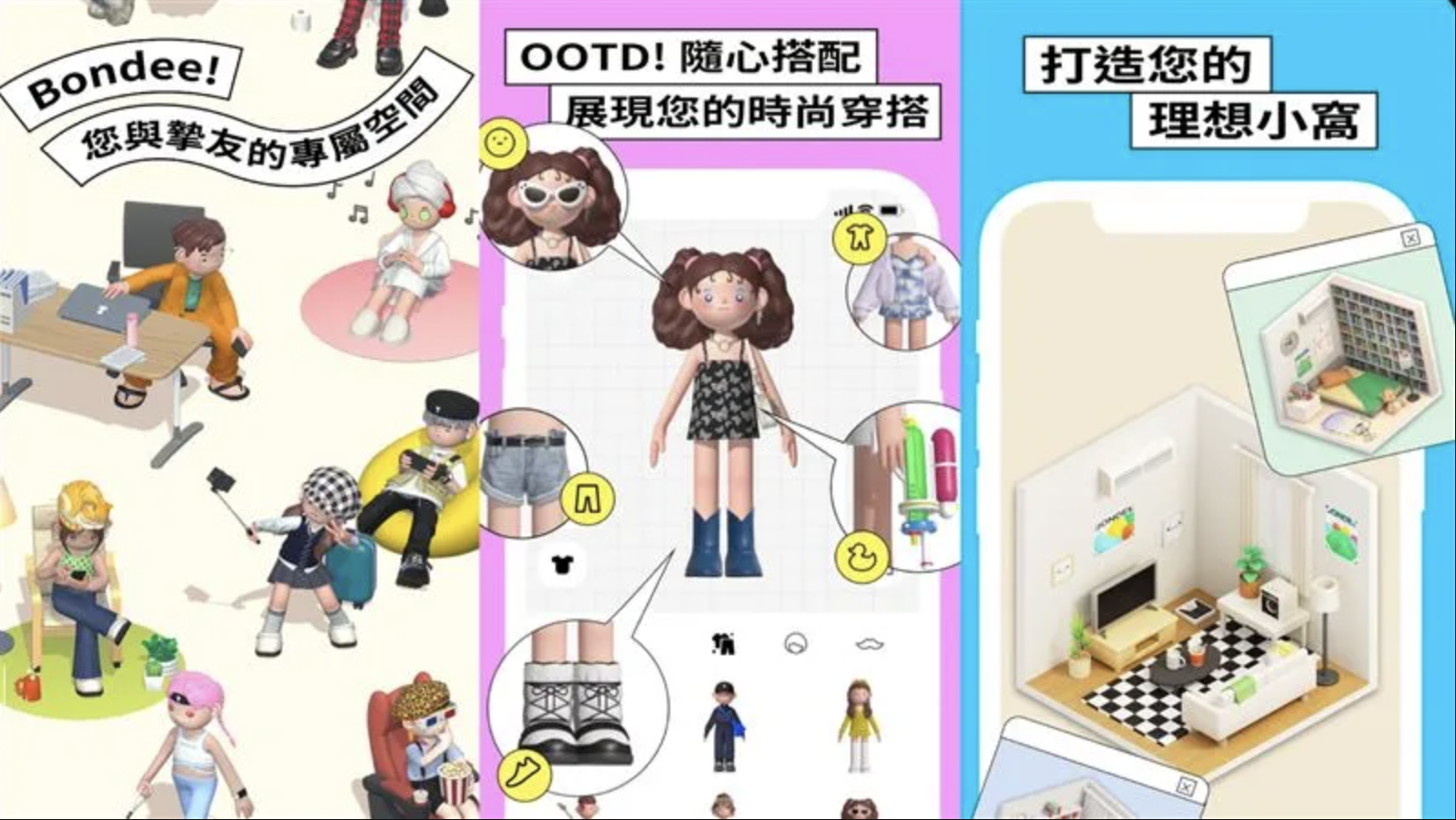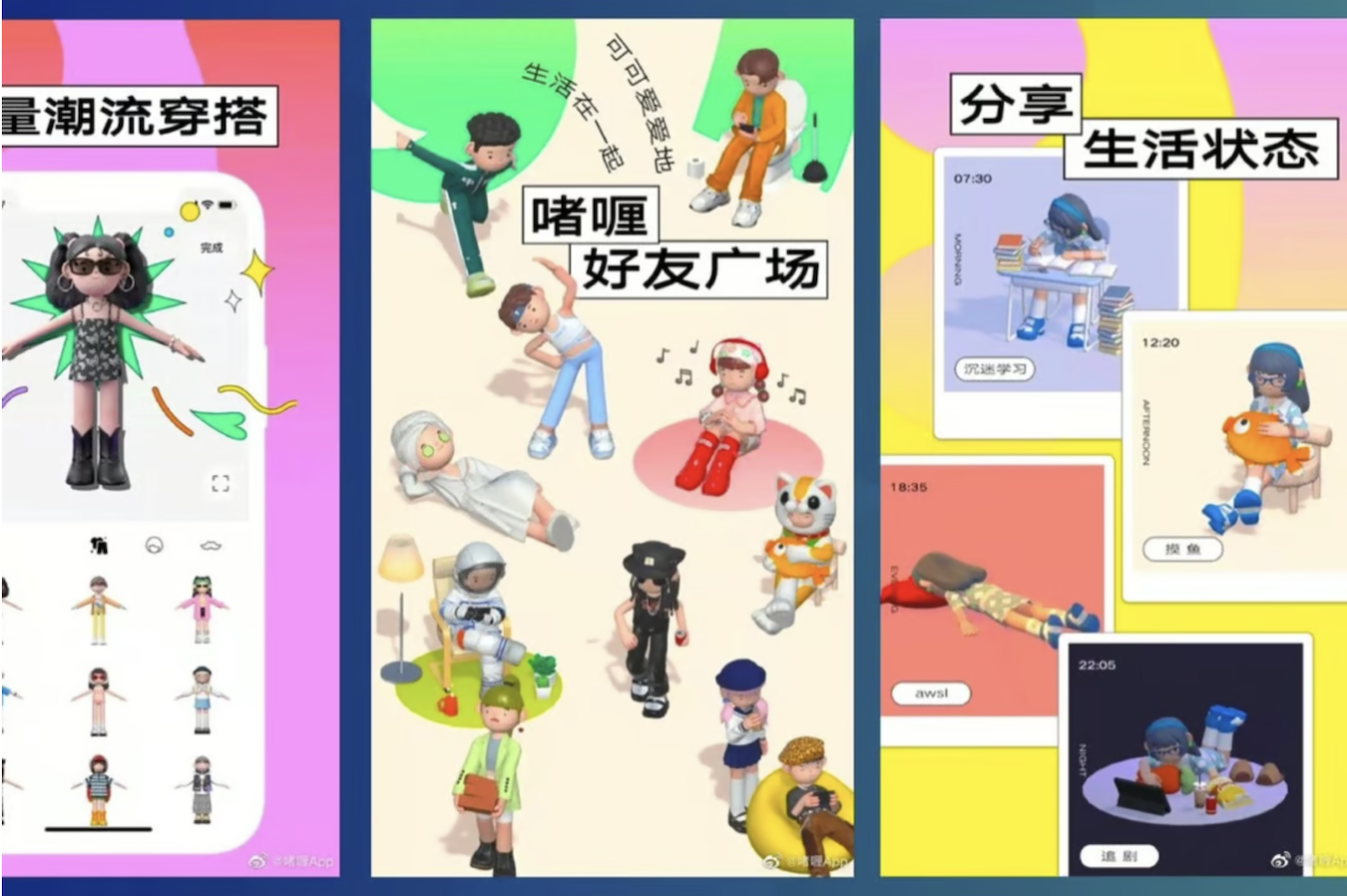by Brian Hioe
語言:
English
Photo Credit: Screenshot
IN THE PAST WEEK, Bondee, a social network app allowing users to create virtual avatars and chatrooms in which they can host up to fifty of their friends, has taken Taiwan by storm. This follows the popularity of apps such as Gathertown in Taiwan, particularly after the COVID-19 pandemic.
More generally, with Mark Zuckerberg’s Metaverse and similar developments, there has been a push toward apps that allow customizable characters to interact in online spaces. COVID-19 can be seen as partly accelerating this trend. For example, Taiwanese art groups such as NAXS Corps developed online club spaces during COVID-19, in light of that the clubgoers could not attend music events in real life, while similar experiments took place across the Asia Pacific, as with the Philippines’ Club Matryoshka. These were, however, independently organized projects that did not come from any major company.
Comparison of Bondee (top) and Jelly (bottom)
Concerns have been raised about Bondee by civil society groups such as the Economic Democracy Union, however. The Economic Democracy Union was not only one of the major players during the 2014 Sunflower Movement, but has played a major role in shaping public discourse around trade agreements with China, Chinese investments in Taiwan, and advocacy for Hong Kong asylum seekers in Taiwan in the past few years.
Namely, although Bondee appears to be an app co-developed by the US and South Korea, the company that produced the app is called Metadream and is registered in Singapore. But what particularly jumped out to many app users was that the app’s user terms agreement referred to Taiwan as part of China.
This is part of what has contributed to suspicions that Bondee may actually be a Chinese company seeking to enter Taiwan by pretending to be from another country. Namely, the app’s design highly resembles the Chinese app Jelly (啫喱), which took China by storm in January 2022, becoming even more downloaded than WeChat. At one point, Phoenix Media, which has state investment, also invested in Jelly.
Yet Jelly was removed from the Chinese app ecosystem after user errors were reported in February 2022, with concerns including privacy concerns, security issues, and other problems. Some users reported their private information had been leaked, resulting in spam calls, after using the app. To this extent, the name “Bondee”, sounds as though it may be the PRC term used for “disco” (蹦迪).
It is to be seen, then, as to the background of Bondee. It is probable that some of those who have downloaded the app will shrug off some concerns, making the app another Chinese app widely used in Taiwan, alongside Douyin/TikTok, and some Chinese streaming services. Bondee’s entrance into the Taiwanese market takes place at a time when Taiwan is considering a ban on Douyin/Tiktok.

Bondee’s user terms agreement
While Douyin/TikTok has already been banned from devices used by individuals in the public sector, it is to be seen whether the ban is eventually expanded to society at large. Although this would raise questions about if this infringes freedom of expression, the Taiwanese government is probably carefully watching the debate about a possible nationwide ban of Douyin/TikTok in the US.
Whether any action is taken regarding Bondee will probably be yoked to this debate regarding Douyin/TikTok, which is in any case the more widely used app. But the possibility of Chinese companies seeking to enter Taiwan disguised as companies from other places, particularly Sinophone countries and territories such as Singapore or Hong Kong, may be increasingly prevalent. Bondee may prove another example of this.





